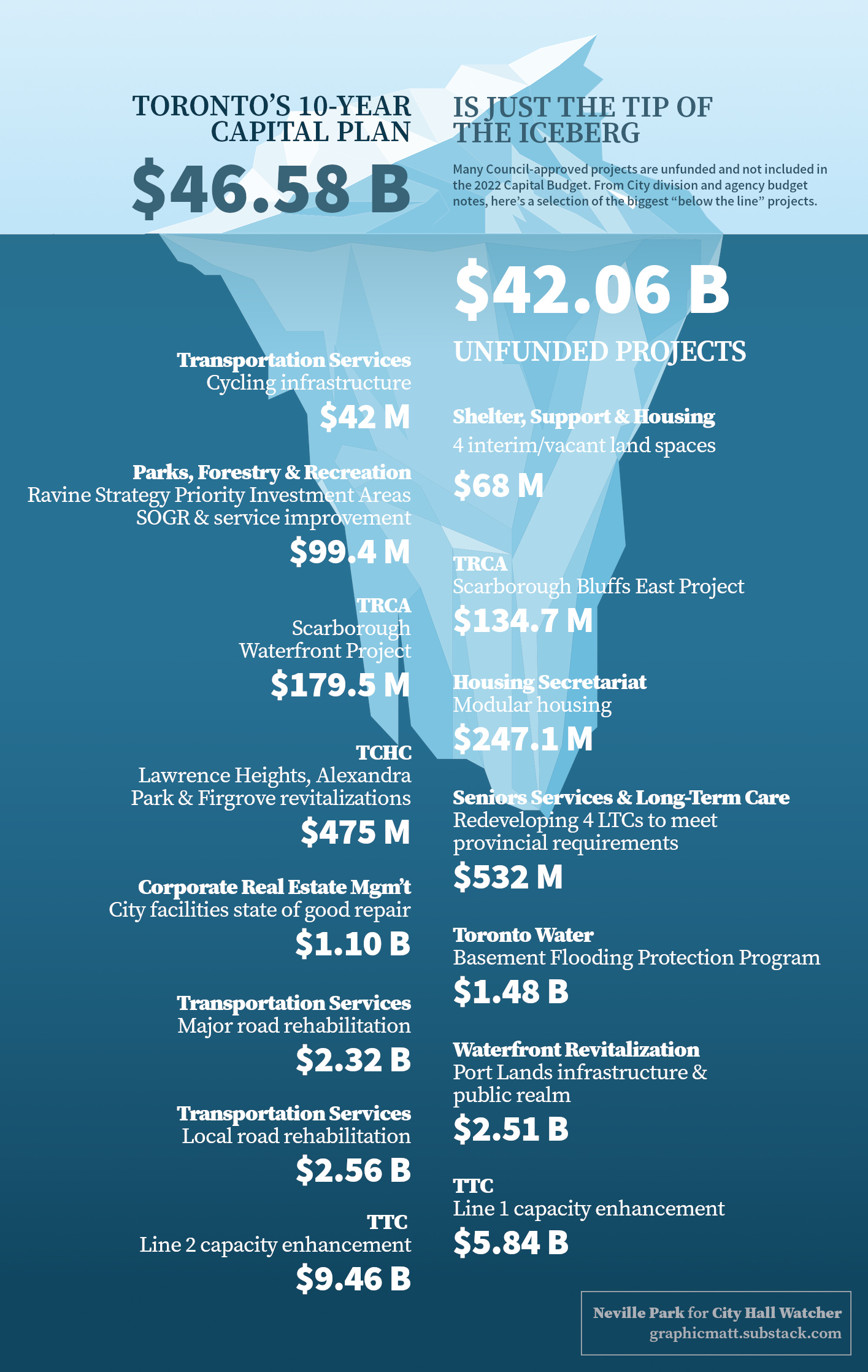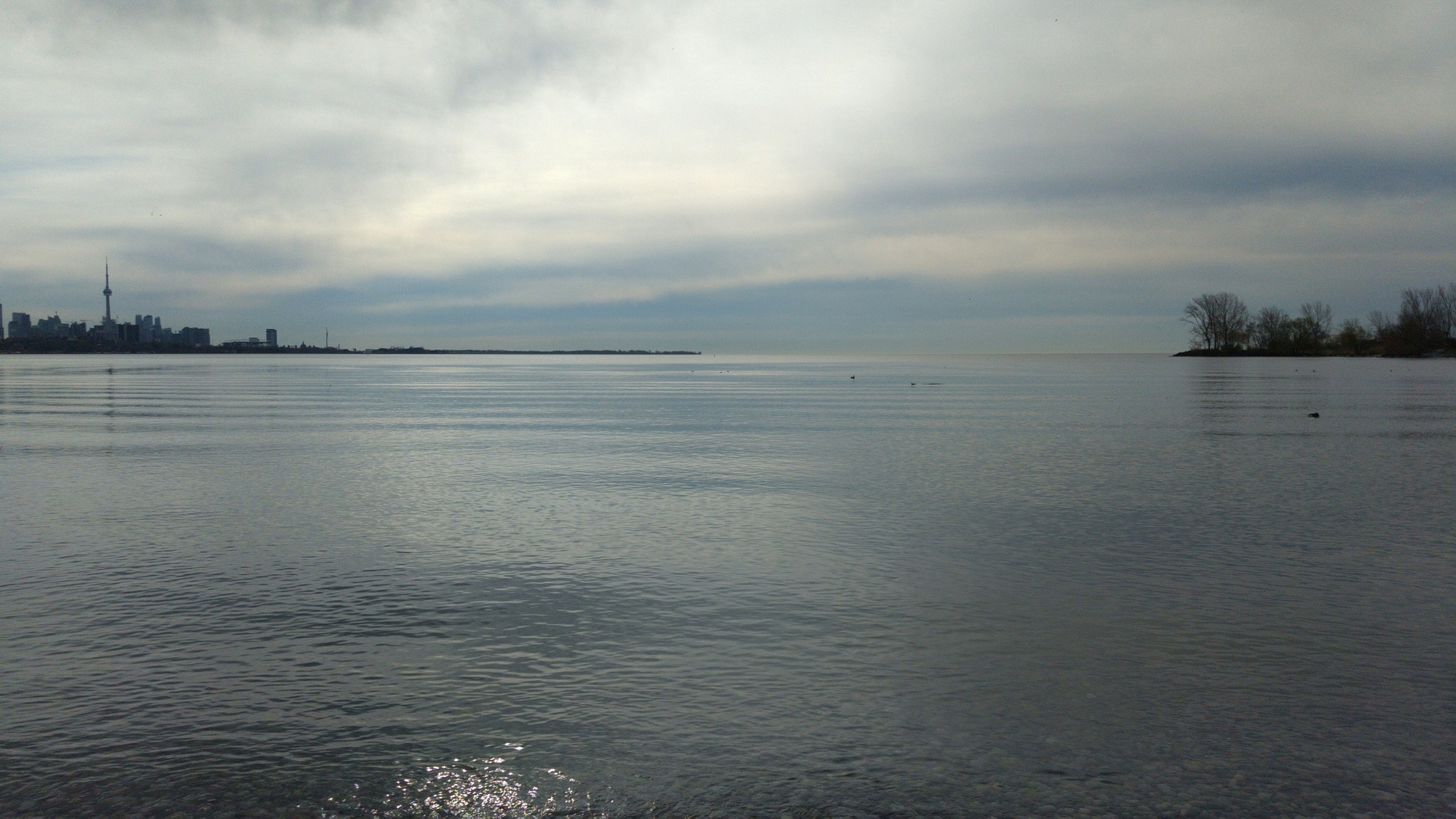So the 2022 tax-supported budget launched last week, and I wrote about it for City Hall Watcher. The post is subscribers-only, but I made some stuff for it I’ve gotta share here. Continue reading The ’Berg Is Back
Category: none
Field Journal: Humber Bay Shores Park
In early May, jealous of all the UK people posting their Pardosa observations, I headed to Humber Bay Shores Park early one morning to see if our native Ontario wolf spiders were out yet. They were not. However, I did find lots of other arthropods! A couple of second-timers—almost as exciting as first-timers. Continue reading Field Journal: Humber Bay Shores Park
A Long Time Ago
A sombre What I’m Reading
Pat Capponi, Upstairs in the Crazy House (1992)
A memoir of the author’s post-institutionalized life in one of Parkdale’s infamous boarding houses, with flashbacks to her abusive childhood and the roots of her depression. She chronicles poverty, fleas, abandonment, addiction, and the determination to assert one’s humanity in the face of a system bent on denying it.
Capponi has since become a prominent mental health and housing advocate here in Toronto, making the city a little more humane. Once, after a spell of suicidality, I was able to stay in the Gerstein Centre which she had a hand in establishing. It helped restore the dignity that the P. E. S. U. strips away from you; I’ll always be grateful.
Stevie Cameron, On the Farm (2010)
The book on the Pickton case. Seriously, there’s nothing I’ve read about in the news from the ongoing inquiry that isn’t in On the Farm.
Cameron focuses on the lives and personalities of the missing women throughout, an emphatic unspoken assertion that they were not “disposable”, they were not worthless, they were talented and vivacious and loving and loved women—their relatives fought for years to get the Vancouver police to take the disappearances seriously. In some cases the VPD flat-out lied to the families to get them to go away; and upper brass refused to let top profiler Kim Rossmo help investigate. To the VPD, women who were poor and addicted and prostitutes and (it’s impossible to deny this had an influence) Native weren’t worth finding.
(Slutwalk is happening right now; stayed in and wrote this up instead. Is SW relevant to impoverished mentally ill women? To addicted Native women in sex work? I suspect not but I’d love to be proven wrong.)
Subverting Minecraft
Minecraft is an endlessly entertaining game because it doesn’t have a plot, an end boss, a time limit, any rules, or any objective at all. This open-endedness forces you to invent your own goals, and it makes for many different modes of gameplay. However, the most common way to play (aside, maybe, from pixel art) goes like this: Wake up on island. Punch trees. Hide from monsters. Make weapons. Fight monsters. Start a strip mine or a quarry. Build a monster-proof base with a tree farm and a mob grinder. Move on to redstone-wired minecart railways. Etc.
I think this gameplay exemplifies a culturally ingrained way of thinking about colonization, nature, and the concepts of wilderness/frontier and exploration. You’re the only human; the land is uninhabited (because neither animals nor monsters count as persons), and you have a perfect right to extract natural resources and kill (naturally) hostile monsters as you see fit. Your goal is to establish control over nature, and by introducing civilization in the form of fortresses and farms, you are imposing order onto chaos. The unfortunate historical associations should be obvious…
Now, you could argue that aspects of this narrative are built into the game, which, after all, was not created in a cultural vacuum. You can turn monsters off, but there’s no way to make them friendly. The tools you can craft include pickaxes, swords, and bows. Et cetera. But much of the fun of Minecraft comes from players exploiting glitches or finding alternate uses for features in order to play the game in new, unintended, and certainly unexpected ways. It is possible to deliberately flip the script, and players are doing it all the time.
One of the first examples I happened to come across was the clan called Anarcho-Communists of Minecraftia (original forum thread). On multiplayer servers, economies often emerge, formally or informally–there are even mods like iConomy that allow admins to regulate currency and shops. The ACoM anticipated this and formed a group of strictly anti-capitalist players.
As for singleplayer, here are some threads from /r/minecraft where people share their own gameplay styles. There’s nomad mode:
I spend most of my time exploring and gathering the few resources I need to keep going. In the afternoon I start looking for a place to set up for the night. These are often in the side of a hill, in natural caves that I make minimal patches to for safety, or even just a simple dirt house near the water. The goal is simple: affect the landscape as little as possible. Reuse and maximize use of supplies. Never stay in one area longer than necessary, or if you do make it a temporary home, keep it as simple as possible. No big structures, no wasted resources. No hoarding of supplies or resources. Take only what is needed.
Then there’s Falloutcraft (a. k. a. Morlock or Moleman), where you spend the entire game underground; or Windwaker (island-hopping)–I imagine this would work well by using Biome Terrain Mod to create an archipelago-type map.
My favourite so far, though, is “caretaker forest elf” and (from comments) similar styles like “caretaker dwarf” and “hollower”:
The caretaker elf doesen’t extract dirt or stone, but she might want to bait creepers to blow on materials she might want to gather. She has no qualms about this since creepers want to blow up anyway. The World was birthed by a giant creeper, after all.
The caretaker exploits natural formations while making structures – building with them, not demolishing them. She also replants trees after killing them, preferably more trees than before, so that she enriches the world.[…] Interesting problem: does this giant grass plain really want me to plant trees everywhere? should i go somewhere else to do that if the plains want to be endless and grassy? you may not care about this, but the caretaker elf does!
Another commenter describes their style as Lonely Vault-Builder:
I build a little home just under the surface, leaving the environment around me as untouched as possible. I build underground gardens to supply me with easy renewable resources, hidden arbors going down to bedrock (with light shafts and careful bracing). I leave only to collect sand from empty isles or wool from roaming sheep. Once I have a safe, sustainable home (with just a touch of glass, light and pleasing architecture) I wander around for a while, at a loss for what to do.
[…] edited to add: Unrelated to the above, I’ve also started embracing a relatively ‘cruelty-free’ playstyle. I don’t kill pigs or cows, and I only punch sheep enough to shear them. (I once accidentally punched a sheep into lava. It was quite sad D:) I only attack monsters that are coming after me, though I’ve no qualms about picking up bones and feathers after dawn […]
All this has got me thinking about how I could change up my more-or-less conventional gameplay. I recently downloaded a map with lots of little islands and open sea. Now, I could establish a base on one of the larger islands, with a mine and a nice house, and light up and mob-proof the islands one by one…but I think I’ll try something different. I’ll build treehouses or camp out in caves, mine only ores that are already exposed (which means just coal and possibly iron), and replant a tree for every one I chop down. I’ll do my best to build good shelters, but I don’t plan on making weapons, so if a spider or creeper gets me–well, if I die, I die! (No big deal, as I don’t plan on accumulating much stuff anyway.) I’ll make a little boat and journey from island to island. It’ll be an adventure!
In the News: Poverty, Housing, Health
Toronto Star, “Affordable housing to simplify onerous rent rules”, Nov. 29. The [Ontario] Liberals are coming through on their promise of an affordable housing strategy…sort of.
Globe and Mail, “Province tells Ford to back off on Toronto welfare funding request”, Nov. 29. The provincial government promised municipalities it would cover half the cost of running Ontario Works. But that cost has risen sharply thanks to the increased caseload during this recession. They’re hoping Ford’s frugality means a lower payout.
The Toronto Star, “The rich get rich, and the poor get sick”, Dec. 13. Poor people are vastly more likely to get type 2 diabetes, and, of course, be unable to afford the healthy diet that would help control it.
The Toronto Star, “Welfare rules forcing people into destitution, report finds”, Dec. 13. Includes a smattering of delicious nation-wide statistics. You don’t qualify for social assistance until you’ve exhausted nearly all your assets, and then payments are well below the poverty line—leaving no means of getting back on your feet. Some people seem to think that poverty just happens, like weather or something. In fact, government policies actively create and sustain poverty. You just need to look at the numbers.
Poverty Is By Definition Unsustainable…
I have been doing cognitive behavioural therapy with a doctor at the practice—it helps you deal with negative thoughts and stress. But a lot of my stress comes from financial insecurity, and that’s really not something you can think yourself out of. The doctor encourages me to see the practice’s social worker to help me budget.
I make an appointment. I talk about how it feels impossible to improve my situation when I can barely get by, let alone put money aside. I talk about the panic at the end of the month, knowing exactly how much is in my account, hoping that I don’t have to buy anything before the next cheque arrives. “It’s stupid, but sometimes I’ve worried about dropping the carton of eggs because I didn’t have the $2.50 to buy another one.”
“It’s hard,” he says. “I see other people on social assistance and everyone worries about the same thing—the end of the month, the end of the month. And people do drop the eggs sometimes.”
I ask him how other people manage.
“Sometimes they go hungry.”
He gives me the addresses of a couple Parkdale food banks and says I can make another appointment if I’m having trouble with ODSP or anything like that.
“Thanks for your help,” I tell him.
An Introduction
Hi, I’m Neville Park. I’ve been blogging under another handle for several years, but my blog is no longer public due to privacy concerns. I miss having a public voice, though, so here I am!
All I ask of you, readers, is to respect my anonymity and respect each other. Please don’t refer to or speculate on my other pseudonym or real name. Don’t make personal attacks. And if a comment you want to make is eerily reminiscent of Derailing for Dummies, step back and think about what you’re saying and why.
Here goes!
On Memory, and Other Things
There is a town in north Ontario
with dream comfort memory to spare,
and in my mind I still need a place to go;
all my changes were there.Neil Young, “Helpless”
Memory oppresses me.
The Shadow of the Torturer, Gene Wolfe
Great is the power of memory, an awe-inspiring mystery, my God, a power of profound and infinite multiplicity. And this is mind, this is I myself. What then am I, my God? What is my nature? It is characterized by diversity, by life of many forms, utterly immeasurable…
Augustine, Confessions X. xvii (26)
The priest in the booth had a photographic memory
for all he had heardBelle and Sebastian, “The State I Am In”
I have recently been reading Gene Wolfe’s Book of the New Sun tetralogy and thinking about how torture, time, memory, and confession are twined together. This essay, “Torture and Confession in Wolfe’s Book of the New Sun”, has been a kind of starting-point.


